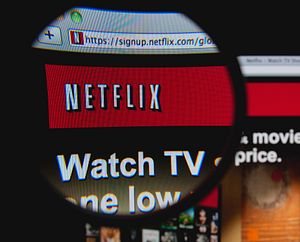Netflix made waves with its early January announcement that it had begun streaming globally, adding services in more than 130 countries, bringing its reach up to more than 190 countries. The company’s co-founder and CEO Reed Hasting heralded the launch, saying “Today you are witnessing the birth of a new global Internet TV network.” He went on to say “With the help of the Internet, we are putting power in consumers’ hands to watch whenever, wherever and on whatever device.”
Not so fast, Netflix.
This week Telkom, Indonesia’s largest telecommunications service provider (which is semi-private, though majority state-owned), blocked access to Netflix. The Wall Street Journal said the block came “after concluding that Netflix didn’t have a permit to operate as a content provider in Indonesia.” The telecom also raised objections to some of the streaming service’s content, saying some of it might violate local laws, particularly regarding violence and pornography.
Arif Prabowo, Telkom’s vice president for corporate communications said in a statement that Netflix needed to adjust to Indonesia’s regulations–namely a 2009 film law. In a 2013 book on constitutional change and democracy in Indonesia, Donald L. Horowitz wrote that the 2009 law introducing new regulations on the film industry in the country required that films “uphold correct religious, moral, and national cultural values.” The law also included a provision placing a quota on how much screen time foreign films could get in Indonesian theaters–and echo of China’s infamous film quota system.
According to the WSJ, a spokeswoman said “Netflix is an Internet television network, not a traditional broadcaster.” She said Netflix was an on-demand service and that people “choose to subscribe and decide what, where, and when to watch.”
Telkom’s director of consumers Dian Rachmawan told The Jakarta Post that Netflix simply doesn’t follow the rules. “The issue is about the permit. They don’t follow the rules. They also display violence and adult contents.”
Other issues, however are also at play. Netflix’s global rollout threatened local providers which are worried their consumers will ditch their subscriptions for a Netflix account. The WSJ notes that Netflix is not blocked by Indonesia’s other telecom providers.
The Indonesian government will have final say on the matter. There are also precedents for a negotiated solution that might placate Telkom. For example, in Singapore Netflix partnered with Singtel to offer access through the Singaporean telecom. Time will tell which issue is greater: local concerns about the subject matter of Netflix’s content or the threat posed by Netflix to local providers’ business. The business issue can be smoothed as it was done in Singapore, with partnerships; censorship is whole different issue and not one unique to Indonesia.
Indonesia isn’t Netflix’s only Asian foe. While the service launched globally this month, it noticeably did not expand to China. In the press release unveiling the global launch, Netflix said it was continuing to explore options for providing service to China. Julia Greenberg wrote an excellent piece for Wired earlier this month, saying that Netflix might never break into the Chinese market for a host of reasons. “Even if Netflix can get past regulators, to break into the market,” she wrote “the path to success still isn’t clear.” Locally-tailored content, afterall, is already being provided by Chinese streaming services.
For the time being, looks like people seeking to sate their Netflix fix in Indonesia and China will need to gain access the old fashioned way: a VPN.

































